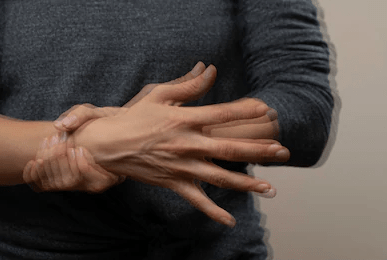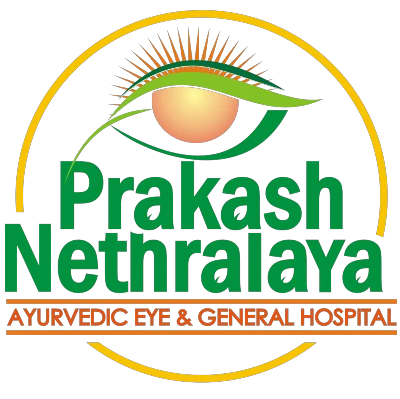Epilepsy Treatment in Ayurveda
Control Seizures & Strengthen Brain Functionality with Natural Medicines, Ayurvedic Treatment & Therapeutic Yoga
Epilepsy Treatment in Ayurveda
Control Seizures & Strengthen Brain Functionality with Natural Medicines, Ayurvedic Treatment & Therapeutic Yoga
Table of Contents
Toggle
Epilepsy is a serious disorder that leads to sudden, recurrent seizures. It is like a short circuit in the brain that leads to a temporary attack that paralyses the patient. It results in spasms and uncontrollable muscle twitching in the patient’s body. It is a concerning condition that can seriously affect the quality of life of the patient. Ayurveda offers a complete and reliable epilepsy treatment that treats the disease without any side effects.
What Is Epilepsy?
Epilepsy is a non-communicable disease of neurological origin. Around 50 million people suffer from this disease worldwide. It is a disorder in which brain activity becomes abnormal, causing seizures or periods of strange behaviour, sensations, and awareness loss. The disease shows episodes of involuntary movements in the body, losing consciousness, and losing bowel or bladder function control. Both males and females of all races, backgrounds, and ages suffer from Epilepsy.
Causes Of Epilepsy
Head trauma, certain brain conditions like brain tumours or stroke, high-grade fever, infectious diseases such as tubercular or viral meningitis, and brain swellings are the leading causes of epilepsy. Prenatal injuries, an infection to the mother, poor brain nutrition, or lack of oxygen supply can be significant causes of epilepsy in children.
Signs and Symptoms of Epilepsy

Seizures

Uncontrollable Movement of Hands and Legs

Psychic Symptoms: Fear or Anxiety

Temporary Confusions
The symptoms of epilepsy may range widely. They are as listed below.
- Temporary confusion.
- Uncontrollable jerking movements of the arms and legs.
- Loss of consciousness or awareness.
- Psychic symptoms, such as fear, anxiety.
- The seizure lasts more than five minutes.
- High-grade fever.
- Heat exhaustion.
Complications
There are countless complications related to epilepsy seizures:
- The loss of consciousness during the seizure may make the person fall and lead to injury.
- If the person going through a seizure is driving may lose control over the vehicle and meet an accident. There are many states that have restricted driving for epilepsy patients.
- Epilepsy patient carries a higher risk of drowning in swimming pool if they get a seizure. Epilepsy patients must avoid swimming or any other kind of water sports.
- Epileptic people have several emotional problems including anxiety and depression. These issues may be there despite the disease but the difficulties related to epilepsy may easily get depression and anxiety.
Preventions for Epilepsy
- Most epilepsy attacks are related to some kind of trigger or sudden changes in a patient’s routine and habits. One must learn to keep a tab on them.
- An epilepsy patient must stay away from stress, anxiety and any kind of emotional disturbance.
- Drug abuse and alcohol are two other factors that may aggravate epilepsy attacks. Quit them immediately.
- Any kind of changes in sleep timings or a constant feeling of tiredness or considerable sleep deprivation is another thing that must be monitored.
- The patient must take medications for seizures regularly without missing or skipping any dose.
- The patient should also stay away from factors that disturb the normal senses like noisy environments, flashy lights, video games, constantly looking at the computer screen, etc.
- Women going through menstruation or pregnancy should be given special care.
- Epilepsy patients must get enough sleep and stick to it.
- One must try to learn relaxation and management techniques so that one can handle stress and pressures.
- Keep your diet healthy and full of fruits and vegetables.
Diagnosis and Epilepsy Treatment
Apasmara is the term used for epilepsy in Ayurveda texts. The symptoms are classified into three major categories based on the dosha involved, i.e., Vata, Pitta, and Kapha.
All types of epilepsy are curable with Ayurvedic treatment, a disciplined lifestyle, and diet changes. Ayurvedic epilepsy treatment can manage the disease to a large extent and help the patient lead a typical day to day life. There are various types of epilepsy treatment that differ on the basis of Dosha responsible for it. The main points of differentiation for Ayurvedic treatment for epilepsy, according to the dosha involved, are as follows.
- Vata Dosha: Lack of sleep, constipation, overexertion, and mental stress aggravate Vata dosha. Vata is calmed with the help of medicated Abhyanga, Shirodhara, and Vasti treatment.
- Pitta dosha: Inflammatory conditions increase the Pitta levels that ultimately lead to increased heat in the head. This condition is corrected by Virechan therapy.
- Kapha Dosha: This is often due to a blockage of the nervous system. The vital sign of Kapha epilepsy is the excessive secretion of saliva. Vaman and Nasya are the main procedures for detoxification of this type.
Our Approach To Epilepsy Treatment
Ayurvedic Treatment
Our Ayurveda doctor examines the patient’s clinical history, daily routine, and mental state. Dosha dominance is found from the symptoms. Accordingly, the doctor prepares the treatment plan. Ayurvedic treatment for epilepsy includes herbal medicines, diet and lifestyle suggestions, and Panchakarma therapies. The primary Panchakarma therapies include Vaman, Virechan, Vasti, Nasya, and Shirodhara. The one course of Panchakarma treatment may vary from 2-3 weeks. The total treatment duration for the complete cure of epilepsy can be from 1 year to 2 years. The patient can consult with our Ayurveda experts either in the hospital or by online video consultation.

Diet and Lifestyle Changes
- An epilepsy patient should avoid spicy, fried food, fast food, excessive sugar intake, strong tea & coffee, alcoholic beverages, pickles.
- A patient with epilepsy should keep engaged in positive activities to help relax and strengthen the mind.
- Adequate prenatal care can reduce new cases of epilepsy caused by birth injury.
The Benefits of Ayurveda for Epilepsy treatment at Prakash Nethralaya
Investigates The Root Cause
The Ayurvedic approach to illness looks for the fundamental causes of the disease rather than symptoms. The main causative factor of the disease is removed from the patient's daily routine. Once the diagnosis is confirmed, treatment is decided from the available two directions as per the classics. First one is Shodhan (detoxification) to clean the body with the help of Panchakarma therapies and the another is Shaman (balancing the doshas) by using Ayurveda medicines, diet correction and lifestyle adjustments. Detoxification with Panchakarma improves the efficacy of Ayurveda medicines in chronic and advanced cases.
Medicines Are Safe To Take
Ayurveda medications are not manufactured in a synthetic or chemical form but in their natural state. Because of this, the herbs are gentle on the body, and there is no chance of side effect or adverse reactions, regardless of the length of time the patient takes them. At Prakash Nethralaya, we use the best quality Ayurveda medicines to ensure the safest and fastest recovery. There is in house processing and dispensing of the medicines for our patients. A few medicines are made available from the good manufacturing companies also.
Uses Holistic Strategy
Ayurveda is based on the idea that each person has a distinct personality and body type and, as a result, their treatment. Ayurveda places more emphasis on treating the patient rather than treating the ailment. The physical composition of two different people with the same ailment may need a different therapeutic approach. An Ayurveda expert at Prakash Nethralaya uses this body type analysis and then reaches at a conclusion of diagnosis and the line of treatment. Accordingly our doctors prescribe the diet, lifestyle changes, yoga, Ayurveda medicines, and Panchakarma therapies.
